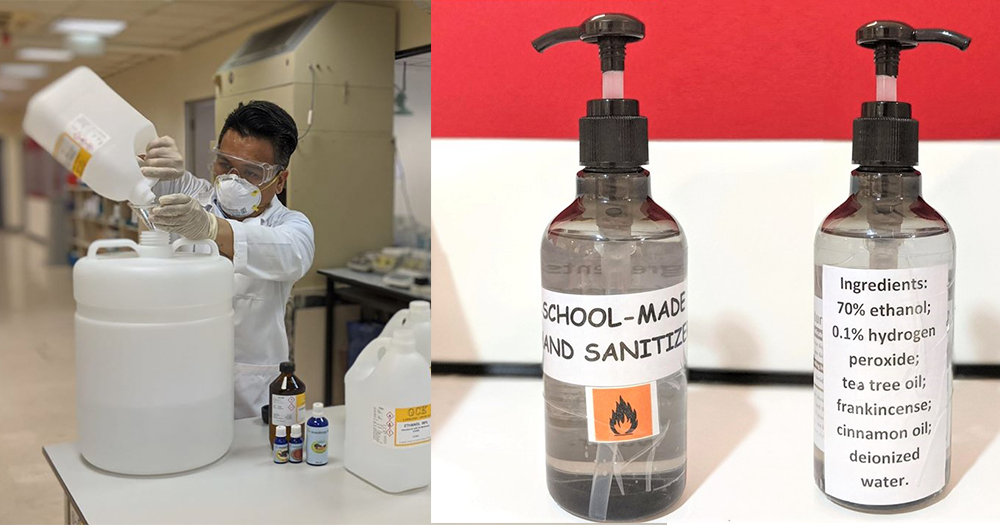Hand sanitisers have become a highly sought-after commodity at this time.
Using materials from the science lab
To meet their own demand for hand sanitisers, one junior college has found the solution -- literally, and metaphorically -- in their own science labs.
National Junior College (NJC)'s Vice-Principal Harman Johll, who was also a science teacher, rallied a team to create hand sanitisers for each class in the junior college.
According to a Facebook post by the Ministry of Education (MOE) on Feb. 17, they used materials already available in school, such as those found in the labs or leftover from other projects.
The sanitiser is made from the following ingredients:- 70 per cent ethanol
- 0.1 per cent hydrogen peroxide
- Tea tree oil
- Frankincense
- Cinnamon oil
- Deionised water
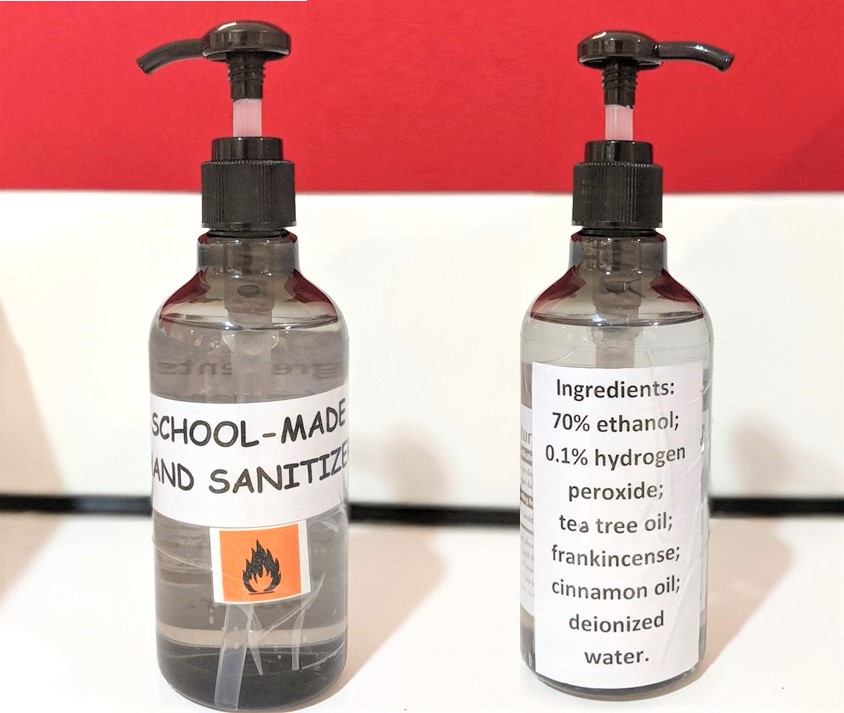 Photo via MOE's Facebook post
Photo via MOE's Facebook post
The process of making these "school-made" sanitisers starts in the science labs, where ethanol is regularly used to clean science apparatus.
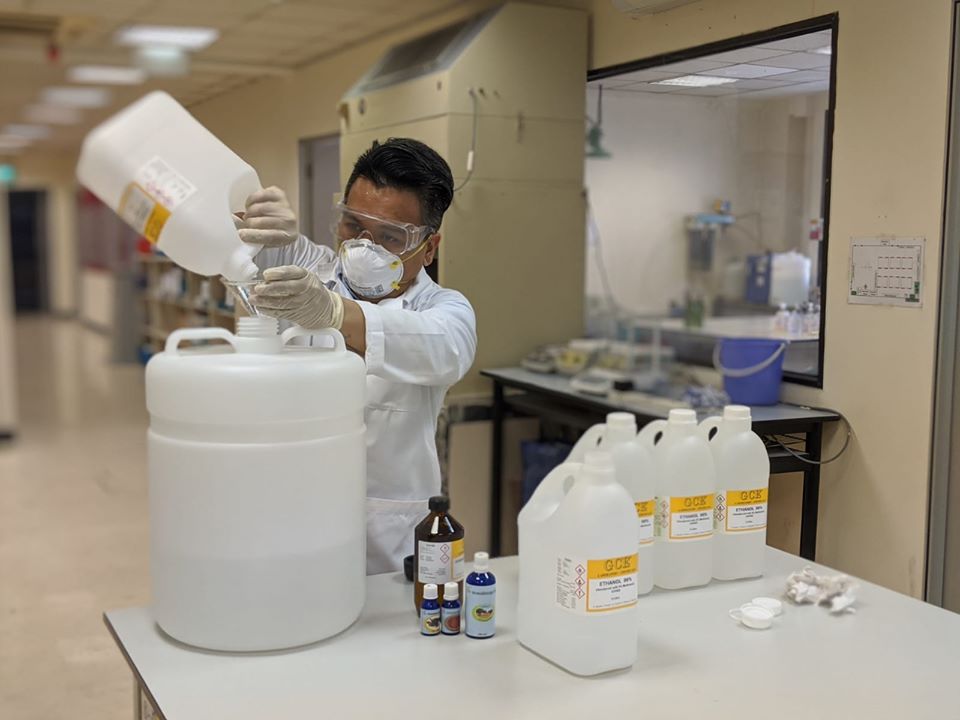 Photo via MOE's Facebook post
Photo via MOE's Facebook post
NJC's management and administrative team would then help to pack and label the bottles.
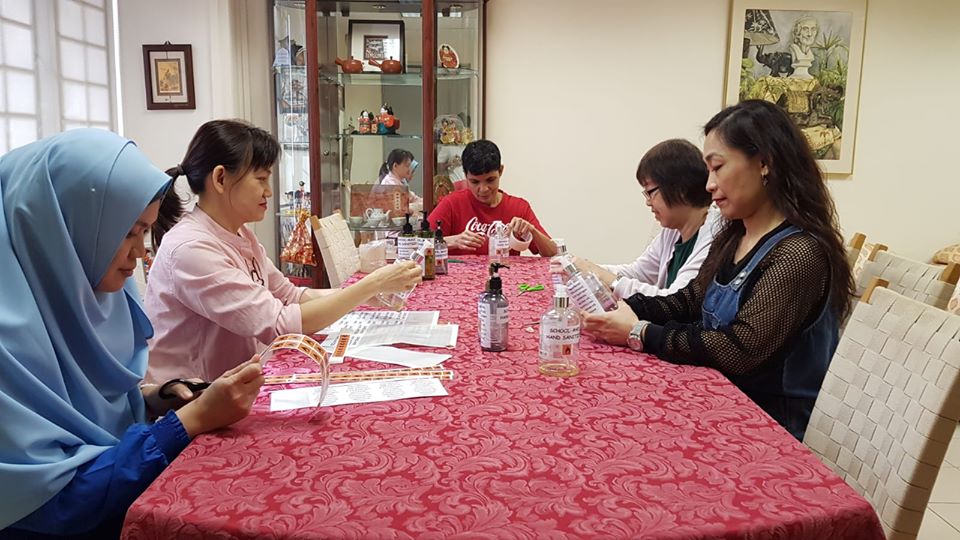 Photo via MOE's Facebook post
Photo via MOE's Facebook post
Students were reminded, however, that the most important and effective way to protect themselves is to wash their hands with soap.
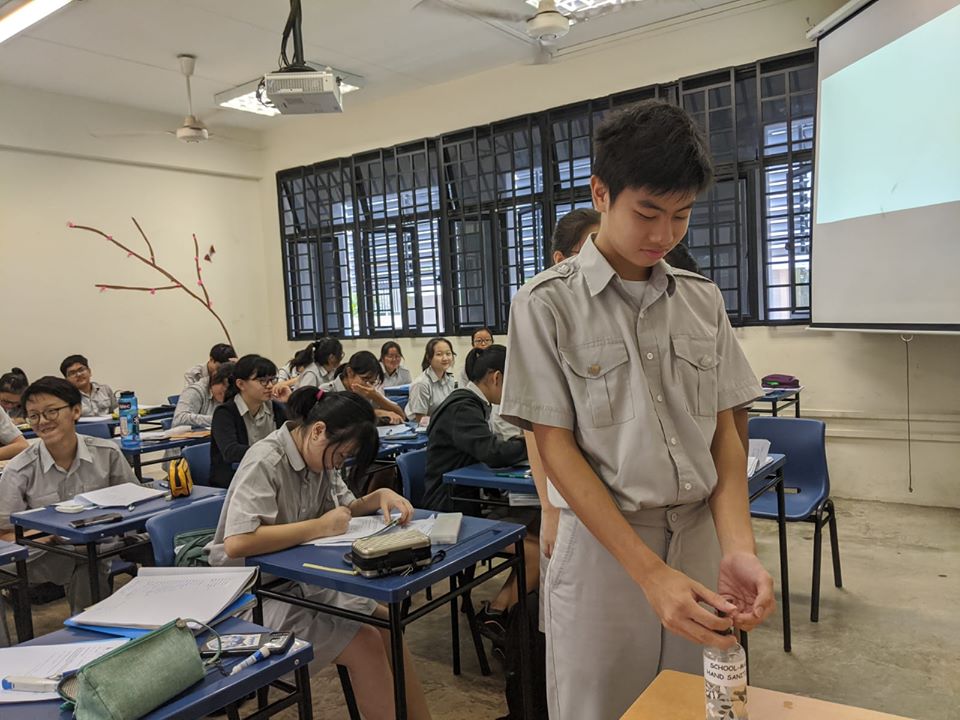 Photo via MOE's Facebook post
Photo via MOE's Facebook post
Making your own sanitiser is not recommended
One should not attempt to create their own home-made sanitiser with these ingredients, though.
Other than the fact substances such as deionised water is not that readily available, it is crucial and necessary to have the right ingredients, such as solubilisers and preservatives to ensure effective formulations.
Many people also do not have the right equipment or safety measures to ensure that the hand sanitisers are contamination-free.
In other words, leave it to the experts, and wash your hands.
Top image via MOE's FB post
If you like what you read, follow us on Facebook, Instagram, Twitter and Telegram to get the latest updates.
